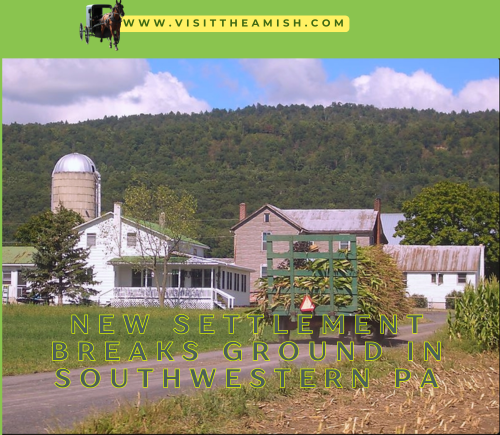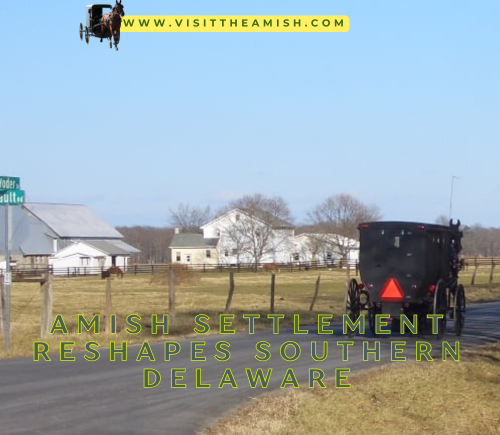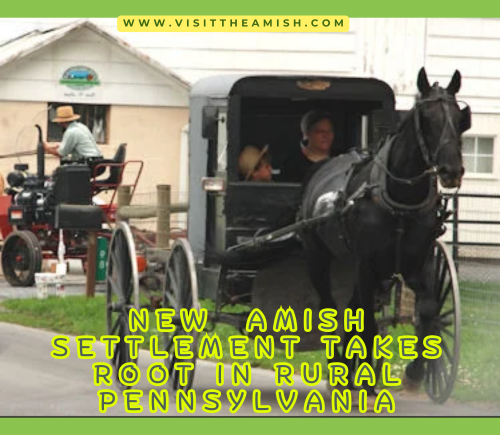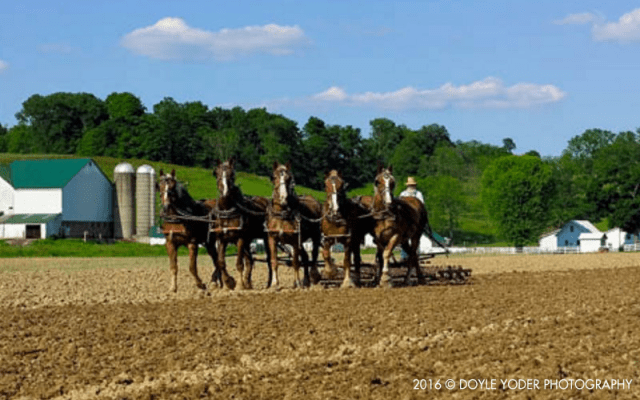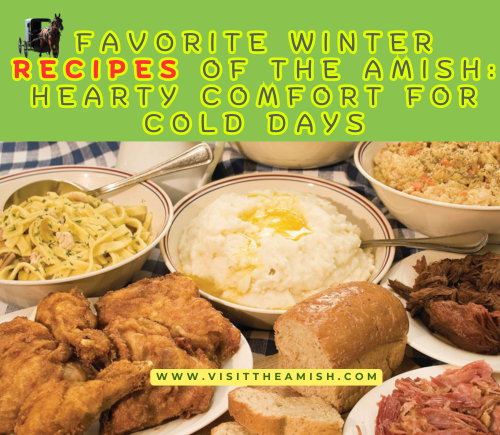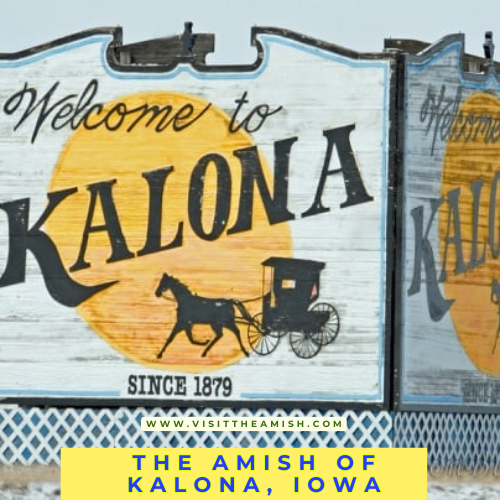New Amish Settlement Brings Traditional Values to Southwestern Pennsylvania
In a surprising development, a new Amish community has begun to establish roots in the rolling hills of southwestern Pennsylvania, marking a significant expansion of the Amish presence in the Keystone State. The fledgling settlement, located near the town of Waynesburg in Greene County, represents the first Amish community in this part of the state and has sparked curiosity and interest among local residents.
The new settlement, which began taking shape in late 2024, currently consists of about 20 families who have relocated from various Amish communities in Ohio, Indiana, and central Pennsylvania. Their arrival has brought a touch of tradition to an area known for its coal mining history and rural charm.
Jacob Miller, one of the first settlers to arrive in the new community, explained the decision to move: “We were seeking a place where we could maintain our way of life while finding affordable farmland. Southwestern Pennsylvania offered that opportunity, and we felt led by the Lord to establish a new community here.”
The Amish, known for their simple lifestyle, rejection of modern technology, and dedication to their faith, have been a part of Pennsylvania’s cultural landscape for centuries. This new settlement appears to be of a conservative order, adhering strictly to traditional Amish customs and practices.
Sarah Yoder, another early settler, shared her thoughts on the move: “It’s been a challenge to start anew, but we’ve been blessed with the support of our families and the kindness of our new neighbors. We hope to be good stewards of the land and contribute positively to the local community.”
The arrival of the Amish has already begun to change the landscape of Greene County. Several farms that had been lying fallow have been purchased and are now being worked using traditional horse-drawn equipment. The sight of horse-drawn buggies on local roads has become increasingly common, prompting discussions about road safety and the need for “buggy lanes” in some areas.
Local officials have been working to accommodate the unique needs of the Amish community while ensuring compliance with local regulations. County Commissioner Mark Thompson stated, “We welcome the Amish to our community and are committed to working with them to address any challenges that may arise. Their presence adds to the cultural diversity of our region and potentially brings new economic opportunities.”

Buggies and Barns: New Amish Settlement Reshapes Greene County
Indeed, the economic impact of the new settlement is already being felt. Several Amish-run businesses have opened, including a bakery, a furniture workshop, and a small general store catering to both Amish and non-Amish customers. These enterprises have created job opportunities and attracted curious visitors from neighboring areas.
Eli Stoltzfus, who operates the newly-opened furniture workshop, commented on the business climate: “We’ve found a welcoming market for our handcrafted furniture. People appreciate the quality and craftsmanship of our work, and we’re grateful for the opportunity to serve the wider community through our trade.”
The arrival of the Amish has not been without challenges, however. Some local residents have expressed concerns about increased traffic from horse-drawn buggies and the potential for cultural misunderstandings. To address these issues, community leaders from both the Amish and non-Amish populations have been meeting regularly to foster dialogue and mutual understanding.
Mary Hershberger, an Amish schoolteacher who helps coordinate these meetings, emphasized the importance of communication: “We want to be good neighbors and contribute positively to the area. These meetings help us understand each other better and find ways to coexist harmoniously.”
One of the most significant challenges facing the new settlement is education. The Amish typically operate their own schools, teaching children until the eighth grade. The community is in the process of establishing its first one-room schoolhouse, which will serve all the children of the settlement.
Samuel Lapp, who is overseeing the school’s construction, explained: “Education is very important to us, but we believe in a focused curriculum that prepares our children for life in our community. We’re working with local authorities to ensure our school meets all necessary requirements while staying true to our beliefs.”
The environmental impact of the new settlement has been a topic of discussion among local conservationists. The Amish are known for their sustainable farming practices, which could potentially benefit the local ecosystem. However, there are also concerns about increased land use and the impact on local wildlife habitats.
Environmental scientist Dr. Emily Chen of the University of Pittsburgh commented: “The Amish generally practice low-impact farming methods, which can be beneficial for soil health and biodiversity. However, we’ll need to monitor the long-term effects of increased agricultural activity in the area, particularly in terms of water usage and potential runoff.”
As the community grows, it is likely to face additional challenges. The limited availability of suitable farmland may constrain future expansion, and the proximity to more developed areas could lead to increased pressure on the Amish way of life. However, the settlers remain optimistic about their future in southwestern Pennsylvania.

Bishop Amos Zook, a spiritual leader in the new community, shared his vision for the future: “We came here seeking a place to live out our faith and traditions. With God’s blessing and the goodwill of our neighbors, we hope to build a thriving community that can sustain our way of life for generations to come.”
The establishment of this new Amish settlement in southwestern Pennsylvania represents a significant development in the state’s cultural landscape. As the community continues to grow and integrate, it will undoubtedly bring both opportunities and challenges. The coming years will reveal how this unique blend of tradition and modernity will shape the future of Greene County and beyond.
Local resident Tom Johnson, who lives near the new settlement, expressed his initial skepticism and subsequent change of heart: “At first, I was worried about how this would change our community. But after meeting some of the Amish families and seeing their work ethic and commitment to their values, I’ve come to appreciate their presence. They’re breathing new life into our area.”
The new settlement has also caught the attention of scholars studying Amish migration patterns. Dr. Rachel Anderson, a sociologist from Penn State University, noted: “This move to southwestern Pennsylvania is interesting because it represents a new frontier for Amish settlement in the state. It will be fascinating to observe how this community develops and interacts with the existing cultural landscape.”
As the Amish community in Greene County continues to grow, it faces the challenge of maintaining its traditional way of life while adapting to its new surroundings. The coming years will be crucial in determining the long-term viability and impact of this new settlement on both the Amish community and the broader southwestern Pennsylvania region.
Citations:
[1] https://amishcountryinsider.com/blog/amish-insider/settling-new-lands/
[2] https://museeprotestant.org/en/notice/the-birth-of-the-amish-community-in-alsace/
[3] https://gameo.org/index.php?title=New_Wilmington_Old_Order_Amish_Settlement_%28New_Wilmington%2C_Pennsylvania%2C_USA%29
[4] https://www.hillsdalehistoricalsociety.org/amish-part-1
[5] https://amishamerica.com/pennsylvania-amish/
[6] https://amishrules.com/how-to-become-amish/
[7] https://www.discoverlancaster.com/amish/history-beliefs/
[8] https://www.visitpa.com/region/pittsburgh-its-countryside/western-pa-amish-countryside

